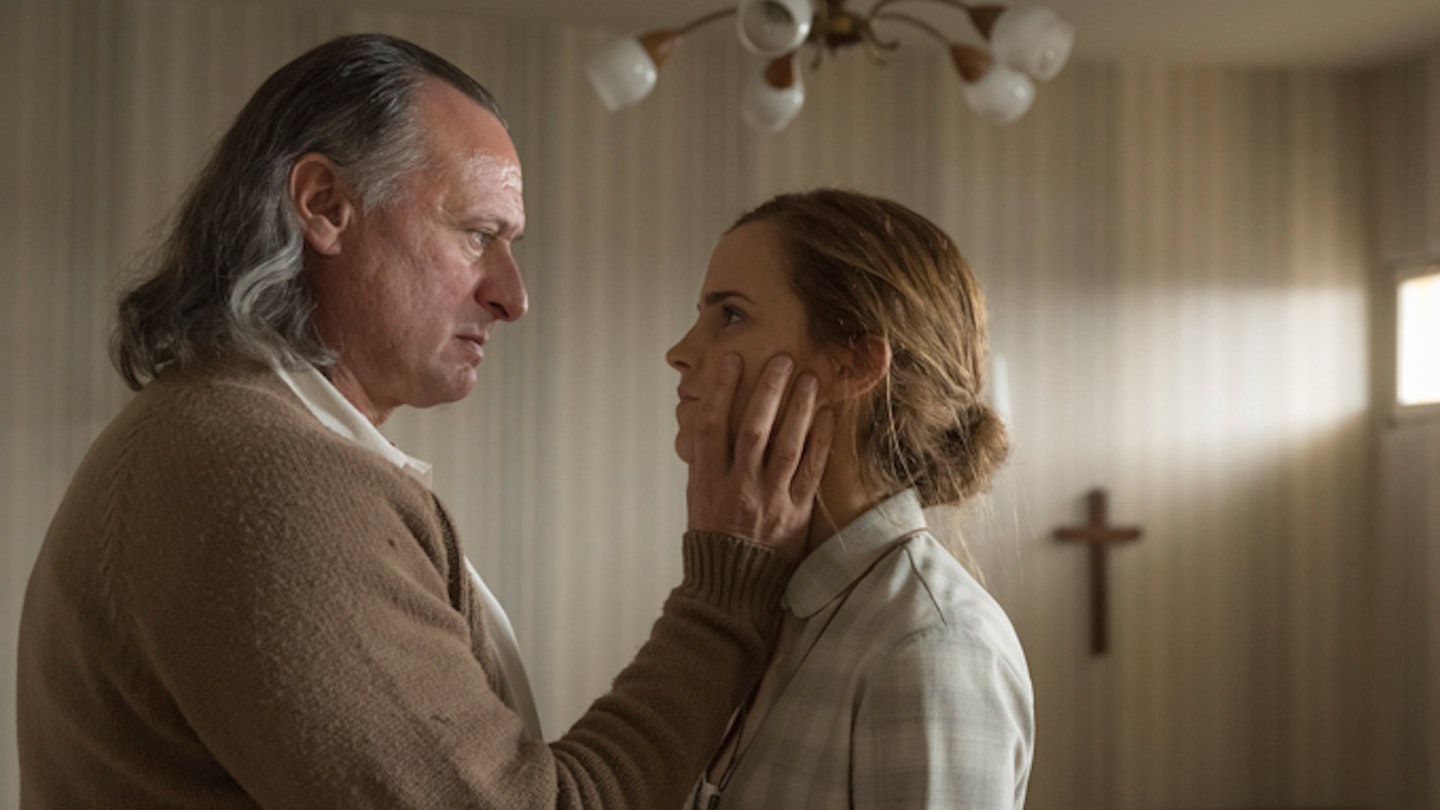German director Florian Gallenberger faced the wrath of Japanese ultranationalists by exposing, in 2009’s John Rabe, the atrocities committed by the country’s army after the 1937 Battle Of Nanking. Such was the controversy in Japan, the film failed to find a theatrical distributor there, although it was well received in the rest of the world. However, Gallenberger will find few champions for this Chilean-set historical travesty that, in crafting a chase movie out of a concentration-camp scenario, makes a mockery of the thousands of deaths that followed the coup led by General Pinochet in 1973.
One only has to look at The Battle Of Chile (1975) — which is plundered for the opening-credit footage — and the subsequent documentaries produced by its maker, Patricio Guzmán, to realise this is not a topic to trivialise. Despite this, Gallenberger and co-writer Torsten Wenzel have decided to use the setting to tap into the spirit of Nazisploitation shockers such as Don Edmonds’ Ilsa, She Wolf Of The SS (1975) to concoct a film that is unforgiveably crass.
Pinochet's victims become a cheap MacGuffin in this sensationalist wallow in fanaticism.
Yet Gallenberger is guilty of more than just a lapse in taste. He provides no context for the fact-based storyline and makes little attempt to distinguish the roles of Lena and Daniel, taken by Emma Watson and Daniel Brühl respectively, from the caricatures serving the Pinochet cause. And while there are allusions to real-life cult leader Paul Schäfer’s Nazi past, his long-haired paedophile is no more credible than Dieter Laser’s mad scientist in the The Human Centipede, while Michael Nyqvist plays him with all the eye-rolling menace of a pantomime villain. Then there are the ‘desaparecidos’ — the victims of forced disappearance — who become a cheap MacGuffin in this sensationalist wallow in fanaticism that is utterly devoid of political resonance.
Events are driven by contrivance and coincidence rather than commitment and courage. There is no evidence of the passion that would prompt Lena to risk all to save Daniel, and the ease with which they are able to meet up to plot their subsequent escape in a supposedly regimented compound beggars belief. But it doesn’t end there. Daniel also resorts to feigning brain damage after electro-shock torture, and somehow gets away with it — allowing him to mooch around without arousing suspicion from the guards. And neither Brühl nor Watson are helped by the dreadful dialogue, which switches between Spanish, English and German with neither rhyme nor reason.
Such sloppiness seeps into every aspect of the scenario, which seems unhealthily fixated on the abuse of angelic boys and the misogynist beatings meted out by Schäfer and his acolytes at the ‘men’s gatherings’ Lena infiltrates in the hope of finding her beloved. There’s potential in her battle of wits with austere matron Gisela (Richenda Carey), but Gallenberger puts more thought into the escape bid and the climactic chase, which slots its pieces into place with grim efficiency. Amazingly, this received seven nominations at the German Film Awards. What were they thinking?
